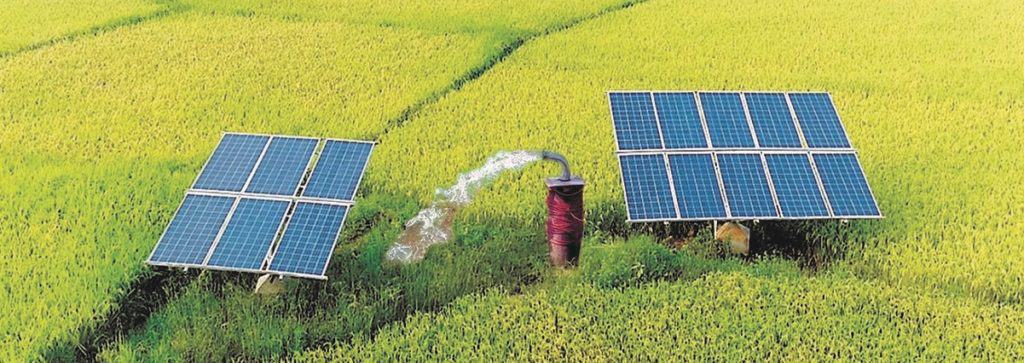Expansion of the PM Kusum Scheme to 20 lakh farmers by allocating Rs 22,000 crores for power and renewable energy sector for 2020-21. This would boost India’s renewable sector.
PM Kusum Scheme
While presenting the budget, the finance minister declared the expansion of the Pradhan Mantri Kisan Urja Suraksha Utthan Mahabhiyan (PM KUSUM) scheme. Under this, the government will provide financial assistance to around 20 lakh farmers to set up standalone solar pumps. Also, this scheme will assist in setting up of 15 lakh grid-connected solar pumps.

The government has taken the above measure to increase farmers income along with providing a reliable and less polluting source of irrigation. The center and state government will provide a subsidy of 30% each per pump basis. Further, farmers will only need to pay an upfront cost of 10% and rest to the bank in installments. The Modi government allocated Rs 34,422 crore for this scheme in the previous year’s budget. Moreover, the scheme allows farmers to set up large solar power capacities along railway tracks.
PM Kusum Boost to the Renewable Energy Sector
Experts regarded this move of government as commendable. Imaan Javan, the director of operations, Suntuity Renewable Energy, stated that the decision shows the government’s concern for renewable energy generation. Further, he said that this move will boost employment and help the agriculture sector too.
Santosh Kamath, Partner, and Leader, Alternate Energies, hailed the decision and said that this could be transformation for agriculture sector. Further, an expert on renewable energy mentioned that the decision would give a big push to farmers income by making the use of fallow lands. Besides, it could add a new generation capacity up to 10-15 GW. In addition, extending the concessional tax rate of 15% to new renewable energy companies is a welcome move. However, the government must address the demand-based concerns of off-grid pumps before expanding the scheme.
Reforms other than PM Kusum
The government has also addressed other problems relating to energy use. It has targeted to replace traditional meters with smart, prepaid meters in all states and UTs over the next three years. Besides, the freedom to choose suppliers will reduce distribution losses, improving customer satisfaction. Further, closure of polluting plants will help improve environmental conditions.
In all, the success of this scheme lies in the earnest implementation by states.